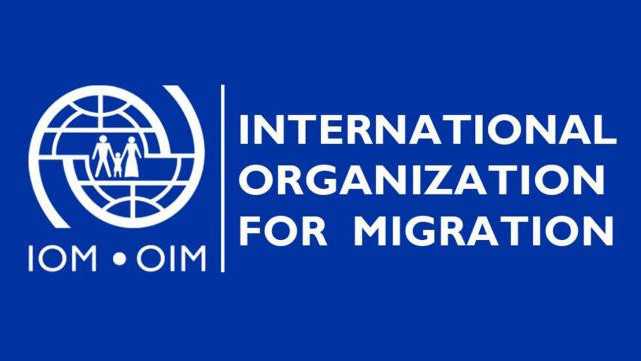Migrants, families need support now more than ever

Image collected
UN Migration Organization, IOM, has needed helping migrants and remittance-dependent communities damaged by the coronavirus pandemic.
"Now as part of your we need to focus on helping remittance-dependent communities who are impacted by the recession," explained IOM Bangladesh Chief of Mission Giorgi Gigauri in a statement yesterday in International Day of Family Remittances.
Due to the financial and labour crisis created by the Covid-19 pandemic, thousands of migrant staff are expected to come back by the finish of the year. Recession-related task losses will affect not merely remittance-receiving households but their extended communities, IOM said.
The UN agency has urged communities to aid the reintegration and combat stigmatisation of returning migrant employees to Bangladesh.
Fearing countless lakh Bangladeshi migrants could return in the arriving months, the federal government has declared Tk 700 crore meant for low interest rate loans to the returnees hence they could start fresh businesses. Besides, the government also organized re-skilling of the jobseekers for overseas employment.
Activists say the amount is inadequate, and demanded that migrants and their own families be incorporated found in the social safety net programme for community and economic reintegration.
ECONOMIC Go back ON MIGRATION REDUCED BANGLADESH
Meanwhile, an IOM study finds the monetary return about migration is lower in Bangladesh compared to the countries with a skilled-migrant workforce as the quantity that unskilled and lower-skilled staff remit is much lower than that of skilled personnel.
The survey report on Migration, Family group Remittances, Assets and Expertise Types in Bangladesh conducted on 1,000 remittance-dependent households in 2019 in the united states found a rise in skills corroborated to a rise in the total amount remitted by up to US $255 monthly between 2009 and 2019, it said.
"Migrants' expertise determined how remittances had been invested and saved, with skilled migrants requesting members of the family to get remittances into cost savings accounts whereas unskilled migrants generally used remittance to repay loans," the analysis said.
Higher competent migrants were employed in better paid careers and were more likely to send larger remittances for longer periods than lower skilled migrant staff, it added.
In 2019, $18.32 billion was remitted to Bangladesh, the third highest recipient of remittance in South Asia, by an estimated one crore Bangladeshi migrants.
Over 73 percent of remittances were sent from Gulf Cooperation Council countries, in line with the Bureau of Manpower, Occupation and Training (BMET).
The analysis found Bangladeshi migrant staff were overwhelmingly men (98pc), about 12 percent of migrant employees didn't attend school at all and practically 80 per cent didn't continue studying after secondary school.
About 49 percent Bangladeshi migrants worked as employees for a company and 26 percent as labourers -- daily wage (14pc), in your free time (12pc), and construction (15pc).
Dhaka and Chattogram divisions had the best concentration of remittance-receiving households (76pc).
The survey found remittances were generally used to meet up short-term needs and were rarely used to diversify assets or build financial resilience, which further increased the households' reliance on remittances.
"Low financial literacy of the migrants and their families put them in a precarious scenario regarding income stability, remittance management, and assets building."
The report recommends expense in gender-responsive skills creation, promoting financial literacy and remittance operations capacity of households.
"There should be expenditure in education and expertise upgrade so that lower skilled migrant personnel can earn more and break the cycle of debt," the IOM analysis said.
It also recommended bettering measures for debt supervision and formalising savings to mitigate vulnerability and promoting plans that rise women's financial inclusion.
Giorgi Gigauri said, "We must support the federal government to prioritise expertise development of migrant workers to allow them to increase remittance flow to Bangladesh."
"We also have to focus on providing personal literacy training, particularly to women, to improve productive investment of remittances and build the resilience and economical independence of remittance-reliant households."
Source: https://www.thedailystar.net
Tags :
Previous Story
- 'Press Play' marketing campaign encourages tourism in Shreveport-Bossier
- Economists: Proposed budget hardly prioritizes individual sector
- Covid-19: Economic challenges facing Bangladesh
- Drawing up tourism recovery plan
- Coronavirus: Economy straight down, poverty up in Bangladesh
- PPE a silver lining for ailing garment industry
- IMF halves Bangladesh GDP growth forecast with recovery...
- Hopes still abound for financial turnaround